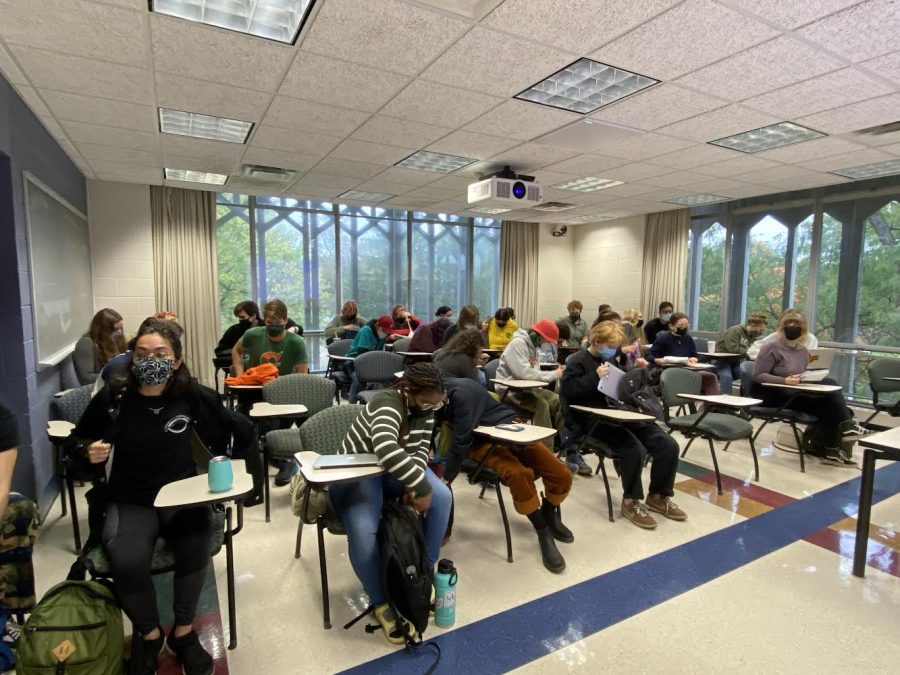Contract Grading Detrimental to Oberlin Academics, Student Success
Contract grading guarantees students the safety of a B grade, with higher grades given according to the professor’s standards of good work.
Contract grading is a set of grading policies that some classes and professors at Oberlin use: if a student meets a minimum set of requirements, they will automatically earn a B+ or similar grade. Despite its benefits of reduced stress, this system of grading is detrimental because it limits preparation for the real world and life after Oberlin and reduces the impact of hard work. Automatically awarding a B+ to students may reduce stress, but a decent portion of that stress can be reasonably expected from the college experience. While taking care of oneself is important, hard work is of equal importance.
Though I have never taken a class at Oberlin that implemented contract grading, it is reminiscent of the grading policies of my high school and my school district’s faulty policy of grade inflation that served to raise the overall GPA of students while lessening the hard work and learning necessary to function in the real world. The high school I went to was part of the Montgomery County school district in Maryland, which had a uniform grading policy. This grading policy split semesters into quarters, and the higher grade between two quarters would be awarded, or the two would be averaged — thereby raising the GPA of students. So, a student who got an A one quarter and a B the next quarter would automatically get an A, and an A and a C would equal a B.
There were frequent complaints about the grade inflation that this led to. It caused problems for some students when it came to college admissions because it fails to prepare students for the work necessary to get higher grades and a better educational experience in college.
The grading policy and intensity of grading at Oberlin certainly came as a shock to me when I arrived on campus my first year. Given this, inflating grades through contract grading may likely do the same for Oberlin graduates in graduate schools and professional careers. It may mean they are less prepared to manage and adapt to more rigorous standards, workloads, grading policies, and life in general.
In the world after undergrad, there will be high expectations for the effort and work put into assignments. In most graduate schools, there will likely be no contract grading system like the one that Oberlin College has started to adopt. The workplace will also present unexpected challenges with projects. In this case, contract grading sets a standard for students to put in minimum effort, leading to work of substantially lower quality than if students gave their full effort. In many work projects and graduate school assignments, the bare minimum will not cut it.
Contract grading also does not help Oberlin College’s reputation. If it became common practice at Oberlin, we would be viewed as a school that inflates grades to improve its overall GPA. It may mean employers would not give as much weight to high grades on a transcript from Oberlin College.
A grading system that is inflated and results in a workload that is too light and easy is a detriment not only to the academic side of education, but to the personal development that occurs during college. If students do not learn how to navigate challenges and situations where they are out of their comfort zones and have to work hard, they will in all likelihood be less prepared and capable to meet the challenges that come with life.
In sum, the contract grading policy is a detriment to students because it requires less effort from students. If potential employers catch on to a policy that may be reasonably seen as grade inflation, they may not give Oberlin transcripts and applications as much consideration. While contract grading may reduce some of the stress that college students experience, it is important to prepare students for life after Oberlin.







